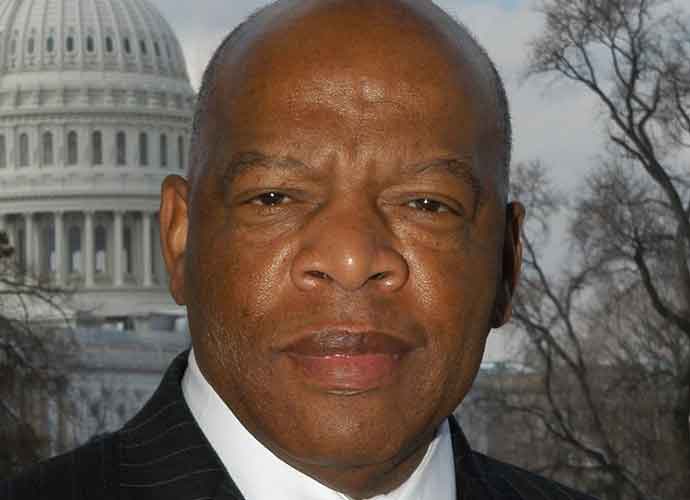House Passes John Lewis Voting Rights Bill With No GOP Votes
On Tuesday, the House approved the John R. Lewis Voting Rights Advancement Act, tossing the bill to the Senate, where it is unlikely to advance further.
The bill was passed 219-212, with no Republicans voting for it.
The bill, named after the late civil rights leader and former Georgia congressman Rep. John Lewis (D-Georgia), would restore the 1965 Voting Rights Act that the Supreme Court gutted eight years ago.
In 1965, then 26-year-old Lewis was severely beaten by local policemen on what historians now call Bloody Sunday.
Subscribe to our free weekly newsletter!
A week of political news in your in-box.
We find the news you need to know, so you don't have to.
Five months after the attack, Voting Rights Act was signed by then-President Lyndon B. Johnson.
Lewis served as a representative for a Georgia district for more than 30 years before he passed away last year.
Rep. Terri Sewell (D-Alabama), the main sponsor of this bill, claimed that the legislators should come together to ensure the “right to vote” for every American.
“Nothing is more fundamental to our democracy than the right to vote,” Sewell said during a debate on the bill. “It was in my district that ordinary Americans peacefully protested for the equal right to vote for all Americans.”
“Old battles have indeed become new again,” she continued. “While literacy tests and poll taxes no longer exist, certain states and local jurisdictions have passed laws that are modern-day barriers to voting. As long as voter suppression exists, the need for full protections from the [Voting Rights Act] will continue.”
The bill, however, is unlikely to be passed in the upper chamber as Republicans are likely to filibuster it.
Senate Minority Leader Mitch McConnell (R-Kentucky) has said he doesn’t see any need for the bill, claiming that the Supreme Court only blocked part of the law.
Before the Supreme Court gutted the voting rights bill in 2013, some states and jurisdictions with histories of racial discrimination were required to get preclearance from the federal government before making any changes to voting procedures.
Several voting rights groups applauded the House vote.
“Along with the For The People Act, the John Lewis Voting Rights Advancement Act would secure the right to vote for all Americans, prevent racist gerrymandering, and move America closer to equal representation for all,” March On for Voting Rights said in a statement. “These bills now sit with the Senate, where they are subject to the filibuster — a Jim Crow relic that enables a minority of Senators, who represent as little as 34 percent of voters, to block legislation favored by the majority.”
Get the most-revealing celebrity conversations with the uInterview podcast!






Leave a comment